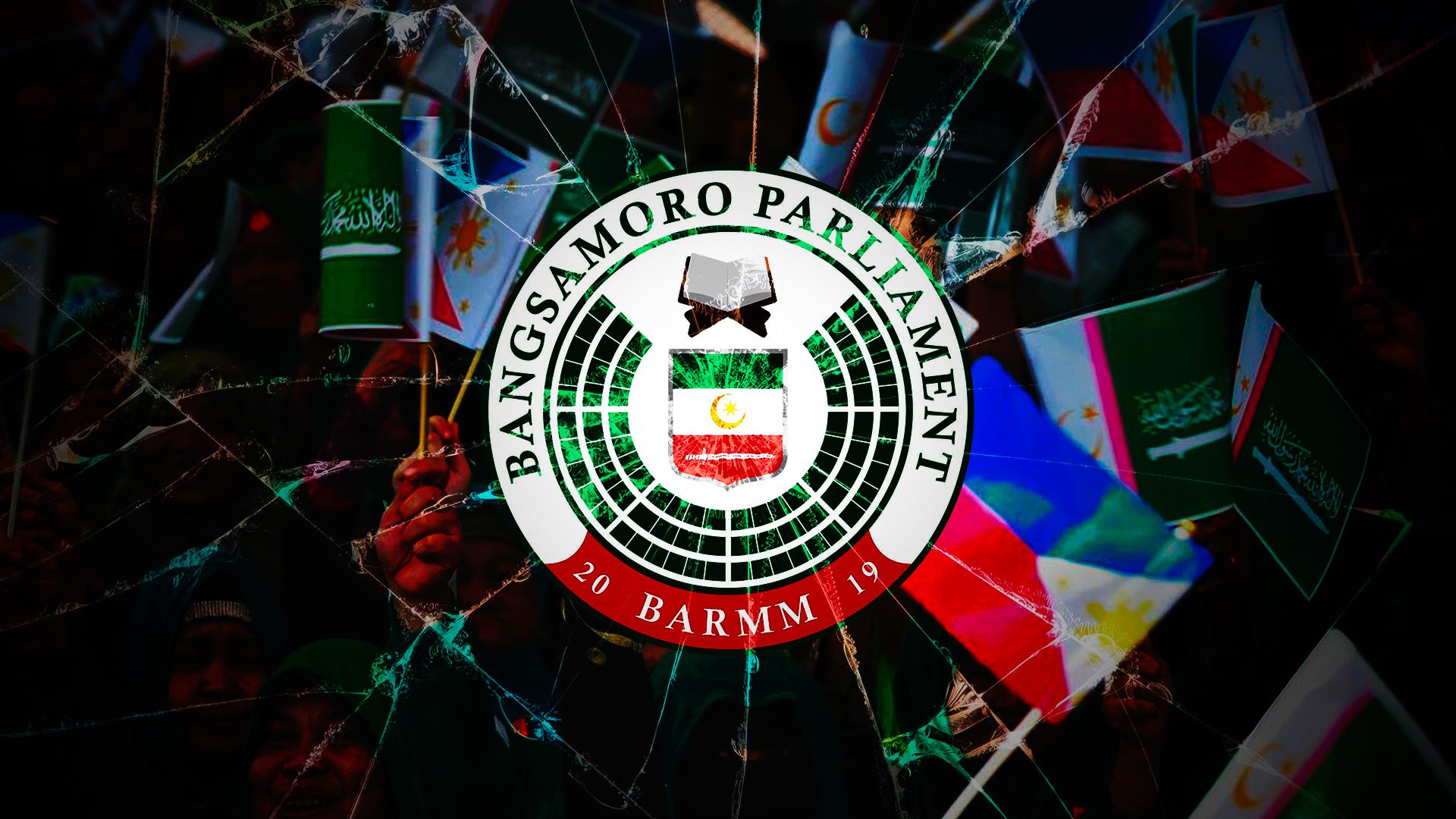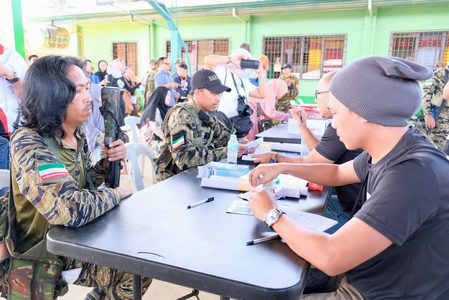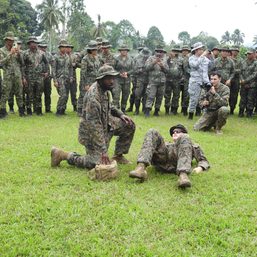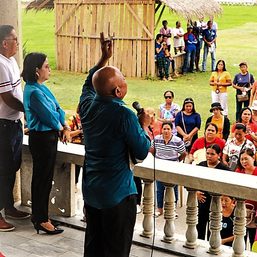SUMMARY
This is AI generated summarization, which may have errors. For context, always refer to the full article.

PART 1 | Political clans pose big threat to BARMM peace – Crisis Group
CAGAYAN DE ORO, Philippines – The Brussels-based International Crisis Group said the upcoming October barangay elections in Maguindanao del Sur are expected to be hotly contested, with political disagreements potentially causing instability.
The new province is one of the two political territories carved out of the now-defunct Maguindanao province by a 2021 law that was ratified via a plebiscite last September.
The Crisis Group’s May 1 report, authored by a team led by analyst Georgi Engelbrecht, warned that power politics in the two new Maguindanao territories remain complex and could result in further conflict.
Maguindanao del Sur and the adjacent Sultan Kudarat province are dominated by the Mangudadatu political dynasty.
Just a few months before Maguindanao was divided into two, a member of the clan, Mariam, frustrated ex-governor Esmael “Toto” Mangudadatu’s bid to unseat her.
Esmael, her husband Suharto’s cousin who was a Maguindanao congressman then, was the bet of the Moro Islamic Liberation Front’s (MILF’s) political arm, the United Bangsamoro Justice Party (UBJP).
Mariam has recently been appointed officer-in-charge (OIC)/governor of the newly-created Maguindanao del Sur, an appointive position she rejected. She eventually held her punches after a meeting with First Lady Liza Araneta-Marcos and Interior Secretary Benjamin Abalos Jr.
She had wanted her political ally, Vice Governor Fatima Ainee Sinsuat of the then undivided Maguindanao, to be her counterpart in Maguindanao del Norte.
Her family, a powerful political force with close ties to the Marcos Jr. administration, leads a coalition of major political clans in the newly-created Maguindanao provinces. They also maintain their influence in neighboring Sultan Kudarat province in the Soccsksargen region, where Pax Ali – son of Suharto and Mariam – serves as governor.
Their group and Bangsamoro region officials have had strained relations, disagreed on matters of governance, and even fought for local positions in the 2022 elections.
Toned down
But on May 3, Mangudadatu offered an olive branch to her Maguindanao del Norte counterpart, OIC Governor Abdulraof Macacua, even as she announced that she wanted to reconcile and cooperate with the regional officials.
Before he was appointed Maguindanao del Norte’s OIC governor, Macacua served as a Bangsamoro senior minister, a confidant of regional interim Chief Minister Ahod “Al Haj Murad” Ebrahim.
Macacua also once led the armed wing of the MILF whose members now hold key positions in the region’s transitional government.
Mangudadatu previously protested the appointment of Macacua as governor of Maguindanao del Norte and had even threatened to question the appointment of OICs in the two new Maguindanao provinces by the President before the Supreme Court (SC).
But a week after she went to Malacañang for the oath-taking of the OICs of the two Maguindanao provinces, Mangudadatu accepted Macacua’s appointment and expressed her willingness to work with him.
She told a news conference on May 3 about the need for regional and provincial officials to collaborate to resolve their differences and move forward, especially in responding to the armed conflicts in Maguindanao del Sur.
Ray of hope
The Crisis Group saw hope in how President Ferdinand Marcos Jr. has been dealing with BARMM officials and the political clans in the region.
While Ebrahim and the MILF supported the presidential bid of former vice president Leni Robredo, the strongest rival of Marcos in 2022, the Crisis Group said the President showed his support for the region’s interim government and the peace efforts started by the administrations of his predecessors.
Despite remaining vague about his vision for Bangsamoro during the 2022 presidential campaign, the Crisis Group said Marcos reappointed Ebrahim as interim chief minister and kept the peace process mechanisms intact, ending months of uncertainty about the Mindanao peace process’ future.
Political clans, the group noted, had earlier attempted to pressure Marcos into allowing them to expand their clout to the regional government by way of appointments, but the President did not give in.
Mariam’s husband Suharto, for one, had been widely seen as a likely replacement for Ebrahim after the 2022 elections, and until August of that year, he was being referred to as “chief minister” by some of his supporters who had presumed he would be rewarded for his family’s support for Marcos’s successful presidential campaign.
Modus vivendi
The Crisis Group said disagreements and distrust among players at local, regional, and national levels would likely persist to make governance in Bangsamoro politics a contentious issue, and the potential for violence goes beyond elections.
The May 1 report also cited concerns that unfulfilled promises of the peace deal could pose a challenge to the MILF, particularly in the relationship between its leadership and rank-and-file members.
While the MILF leadership is committed to the peace process, the report warned that some of its members may take independent action, including a potential resumption of armed struggle if they see that their chances of retaining power after the 2025 elections would be thwarted by vote-buying and deal-making.
The Crisis Group recommended that the national government accommodate the clans while supporting former MILF fighters’ transition to civilian life without tolerance for private armies that pose dangers to regional security.
It said an arrangement – a sustainable modus vivendi – that is acceptable to the national government, MILF, and local political groups is necessary to ensure that the promised socio-economic benefits are delivered and stability is maintained in the predominantly Muslim region. – Rappler.com
Add a comment
How does this make you feel?









![[Just Saying] SONA 2024: Some disturbing points](https://www.rappler.com/tachyon/2024/07/TL-marcos-sona-points-july-23-2024.jpg?resize=257%2C257&crop=335px%2C0px%2C720px%2C720px)











![[Hindi ito Marites] First Lady Liza Marcos: Unofficial presidential spokesperson?](https://www.rappler.com/tachyon/2024/05/Hindi-ito-Marites-TC-ls-02.jpg?resize=257%2C257&crop_strategy=attention)


There are no comments yet. Add your comment to start the conversation.